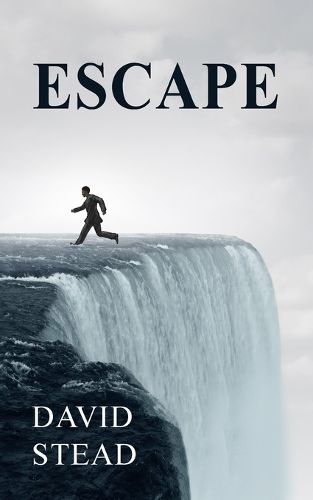Readings Newsletter
Become a Readings Member to make your shopping experience even easier.
Sign in or sign up for free!
You’re not far away from qualifying for FREE standard shipping within Australia
You’ve qualified for FREE standard shipping within Australia
The cart is loading…






This title is printed to order. This book may have been self-published. If so, we cannot guarantee the quality of the content. In the main most books will have gone through the editing process however some may not. We therefore suggest that you be aware of this before ordering this book. If in doubt check either the author or publisher’s details as we are unable to accept any returns unless they are faulty. Please contact us if you have any questions.
John Stonehouse was an ambitious politician who became the youngest MP of that time and soon promoted to a cabinet position. He was an idealist, an attribute of his mother, whose selfless support of life's victims took its toll on Stonehouse's childhood. Her attention falling upon the refugees from the Spanish civil war rather than her own children. His own desire to help people who had no other support manifested itself in Africa in his fight against colonialism and in Bangladesh where he was instrumental in securing that country's independence. However, these fights took their toll on his mental health. Pressure upon pressure built upon his shoulders as he sacrificed his personal businesses to help the Bengalis establish a bank for their people. Resistance from the establishment, lack of support from his beloved Labour Party and hounding by the press led him on a path towards a breakdown. Prescription drugs and the sense of isolation forced him into a series of tragic decisions culminating in the faking of his own death in order to escape. Escape documents the events leading up to that fateful decision highlighting the pressures put upon him and highlights why he made certain decisions. It also compares the environment within which Stonehouse lived and asked whether it has advanced in the last 50 years. David Stead was born into a working-class Yorkshire family. This is his sixth published book, but the first non-fiction one. His passion for writing and examining emotion through poetry has been a constant, but applying this approach to an historical event is a new area of exploration.
$9.00 standard shipping within Australia
FREE standard shipping within Australia for orders over $100.00
Express & International shipping calculated at checkout
This title is printed to order. This book may have been self-published. If so, we cannot guarantee the quality of the content. In the main most books will have gone through the editing process however some may not. We therefore suggest that you be aware of this before ordering this book. If in doubt check either the author or publisher’s details as we are unable to accept any returns unless they are faulty. Please contact us if you have any questions.
John Stonehouse was an ambitious politician who became the youngest MP of that time and soon promoted to a cabinet position. He was an idealist, an attribute of his mother, whose selfless support of life's victims took its toll on Stonehouse's childhood. Her attention falling upon the refugees from the Spanish civil war rather than her own children. His own desire to help people who had no other support manifested itself in Africa in his fight against colonialism and in Bangladesh where he was instrumental in securing that country's independence. However, these fights took their toll on his mental health. Pressure upon pressure built upon his shoulders as he sacrificed his personal businesses to help the Bengalis establish a bank for their people. Resistance from the establishment, lack of support from his beloved Labour Party and hounding by the press led him on a path towards a breakdown. Prescription drugs and the sense of isolation forced him into a series of tragic decisions culminating in the faking of his own death in order to escape. Escape documents the events leading up to that fateful decision highlighting the pressures put upon him and highlights why he made certain decisions. It also compares the environment within which Stonehouse lived and asked whether it has advanced in the last 50 years. David Stead was born into a working-class Yorkshire family. This is his sixth published book, but the first non-fiction one. His passion for writing and examining emotion through poetry has been a constant, but applying this approach to an historical event is a new area of exploration.